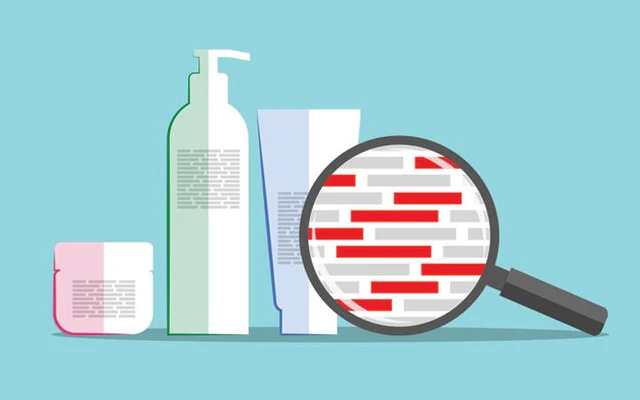
Regardless of gender, cosmetics and beauty products are very important in everyone’s life. Everyone aspires to look attractive. There is an abundance of options available in different brands and price ranges due to the spike in demand for cosmetic goods that address hair, skin, and body care. Additionally, some people turn to cosmetic surgery in an effort to improve their appearance. But in the midst of this quest, we frequently forget that a greater power is ultimately responsible for our creation. Using chemical-based products to change who we are or having surgery could be harmful to our health. In order to raise awareness of the negative effects linked to the cosmetics industry’s goods and activities, this letter attempts to highlight some of its darker sides.
A recent media story featured the story of a woman who had kidney damage following a professional hair-straightening procedure. The case of this 26-year-old woman caught the public’s attention despite her desire to remain anonymous. Between June 2020 and July 2022, she received the treatment three times, and following each session, she had negative side effects such as fever, diarrhea, vomiting, and back discomfort. Notably, she experienced ulcers and reported having a burning sensation on her scalp while undergoing treatment. Upon medical assessment, it was discovered that she had kidney malfunction, as evidenced by high creatinine levels and blood in her urine. CT scans did not detect any signs of infection or blockage. Glyoxylic acid, which was present in the straightening cream, may have contributed to her scalp problems.
Further investigations, including mouse experiments, linked glyoxylic acid absorption through the skin to kidney damage, presenting a rare disorder called oxalate nephropathy. This case underscores the potential risks associated with glyoxylic acid in hair-straightening procedures. Now the question arises: will we continue despite knowing that hair straightening can be dangerous for our health? We are often influenced easily when we see someone looking beautiful after undergoing the treatment, questioning ourselves: why can’t I go for it? I also want to become beautiful, to have straight, silky, and shiny hair, and thus we often overlook our health in pursuit of beauty. Beauty takes precedence over health, and salons typically do not require any medical certificates to ensure the safety of the treatments they offer. When choosing beauty treatments, we are assuming our own risks, sometimes leading to suffering later, as in the case mentioned above.
Lipstick is a common item among beauty products, often found in ladies’ bags and homes. Many are obsessed with collecting different shades of lipstick. Some apply it regularly, while others use it occasionally. However, how many of us truly understand its drawbacks? Regular use of lipstick can darken the natural colour of your lips. In earlier times, ladies used rose petals to naturally colour their lips, but now we harm our lips by relying on chemical-based lip products. Dr. Richa Singh, a Consulting Dermatologist at Junoesque Clinic, cautioned in an interview with HT Lifestyle that lipsticks may contribute to lip darkening due to the chemicals they contain. Particularly, lipsticks with cheap ingredients or dyes pose a higher risk of skin harm. Moreover, individuals with sensitive skin may experience allergic reactions from lipsticks, exacerbating the darkening effect.
Apart from lipstick usage, factors such as sun exposure, smoking, dehydration, and lip biting or licking can also contribute to lip darkening. However, Dr. Singh reassures that it’s not necessary to completely cease using lipstick. With expert tips, individuals can effectively care for their lips and restore their natural pink. Nonetheless, many continue to use lipstick blindly, as it has become an integral part of their lives. Those who use it regularly often feel less confident without it. This highlights the negative psychological impact of cosmetics, as they not only pose physical harm to the body but also affect individuals’ self-perception.
Nowadays to become more beautiful and attractiveness cosmetic surgery has become very famous among youngsters and also among film stars. As they need to look beautiful in the eyes of the public. But how many of us know about the negative impact of those surgeries? On February 16, a man from Hyderabad tragically passed away during a ‘smile designing’ procedure at the FMS International Dental Clinic in Jubilee Hills. His motivation for undergoing the procedure was to enhance his appearance before his wedding.
Unfortunately, this incident is not an isolated case in India’s history of cosmetic surgery-related deaths. In a separate incident in 2022, TV actor Chethana Raj lost her life after undergoing plastic surgery at a facility in Bengaluru. Dr. Sudhir Gupta, head of the forensic medicine department at AIIMS, highlighted the severity of such cases in an interview. He recounted the details of two deaths related to cosmetic surgery procedures. In the first case from February 2018, a 34-year-old man experienced intraoperative death due to fat embolism during liposuction. A post-mortem examination revealed luminal blockade of coronary vessels and widespread hemorrhage in the thoracic and abdominal areas.
Additionally, examination of the lungs and brain showed evidence of fat embolism. These tragic incidents underscore the need for stringent safety measures and thorough assessments should be done before undergoing cosmetic procedures. Even in a survey done in the US from 2009 to 2022, a concerning trend emerged in the Dominican Republic, where 93 U.S. citizens lost their lives following cosmetic surgery procedures. The number of fatalities surged from an average of 4.1 per year between 2009 and 2018 to an average of 13.0 between 2019 and 2022, reaching a peak of 17 deaths in 2020. Concurrently, another survey revealed widespread regrets among individuals who underwent cosmetic surgery. According to research conducted by the Medical Accident Group, 65% of respondents expressed regret over their procedures, citing dissatisfaction with the outcomes or complications. However, it’s worth noting that 28% of those surveyed reported being very pleased with the results of their surgeries. This figure shows and proved that whatever you had naturally just embrace and loved it. Don’t run and waste your money behind this beauty products. Don’t be addicted to any chemical-based cosmetics or makeup products which can cause harm to you.
In recent years, our society has increasingly embraced artificial beauty standards, leading to the exponential growth of the cosmetic industry. Unfortunately, this rapid expansion has come at a cost, resulting in tragic loss of life and irreversible damage to individuals’ appearance due to the use of artificial or chemical beauty products. While beauty products have become an integral part of our lives, we must prioritize safety and quality control.
Government policies should be implemented to ensure rigorous testing and research before the launch of any cosmetic product. Products failing to meet established standards must be promptly removed from the market. I strongly believe that this sector demands greater research, awareness, and legislative oversight to safeguard the well-being of consumers. We should start following what our ancestors practiced during their time to make themselves naturally beautiful without causing harm to our health because “Health is wealth”.
Being a consumer of this product and services its high time to make yourself aware of this negative effect of the cosmetics and cosmetic surgery and Government should frame laws for the cosmetics industries too for quality check.
The author is HOD, Faculty of Law, ICFAI University, Raipur, Chhattisgarh















